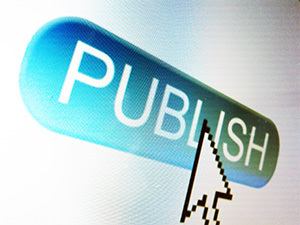
With both camps still divided on the self-publishing front, the same tired arguments for and against the concept are still being levied: “self-published books are notoriously bad” versus “every book has the right to be published.” These same two ideas, both for and against self-publishing, have been uttered since the recent wave of indie author revolution began, to the point that they have almost become catch phrases for both the supporters and critics of the model.
In many critics’ minds, traditional publishing still stands as the much-needed gatekeeper, or the “filter,” as an industry expert put it at the recent PubSmartCon event in Charleston. Without that filter in place, the waters of bookselling will get muddied by the debris that manages to work its way in. But in the case of many authors who’ve left traditional publishing behind for one reason or another, self-publishing is the only route to give their existing fan base more of what they want.
Author and professional biographer Larry Grobel has around a dozen traditionally published and bestselling titles to his credit. Some of his more notable works include the authorized biographies of Marlon Brando, Al Pacino, Truman Capote, and Barbara Streisand. Over the course of his long career as both a biographer and a journalist, Grobel compiled countless pages of transcripts of conversation with notable people, and took own original photographs in the process. But when he approached his long-time publisher with his completed book about this career, You Show Me Yours: A Writer’s Journey from Brooklyn to Hollywood, he was told what many authors have blatantly been told by the industry:
“Call us after you sell 100,000 ebooks, we’ll pick it up.”
As Grobel’s work is considered to be memoir and the industry is notoriously reluctant to publish anyone’s life story, it was deemed not worth the investment (this is despite the fact the author’s book is filled with information, conversations, and unpublished photographs of his subjects that he owns the copyright to, which would be considered industry gold to some). Once Grobel could demonstrate an audience for the book by selling it himself, then the publisher would deign to take over.
Grobel’s reason for self-publishing is far from isolated, unfortunately. As bookstores close and discovery becomes difficult, an already hard-to-break-into industry has become even more wary of investing in new titles. But it still begs the question: is his self-published book unworthy because of its status? Is the author not already a bestselling writer and a respected veteran in his genre? So what would cause bookstores to refuse to stock it, and newspapers (many of whom Grobel has probably contributed to over his astounding career) to refuse to review it?
The online community became incensed this week when Smashwords’ CEO and founder Mark Coker posted his Indie Author Manifesto, supporting the belief that every book deserves the opportunity to be placed in front of readers. And while critics of that idea took to social media to complain that this belief is part of the downfall of publishing, what is even more likely to destroy books is having a single entity decide for readers that certain books just don’t need to be published.
Mercy Pilkington is a Senior Editor for Good e-Reader. She is also the CEO and founder of a hybrid publishing and consulting company.